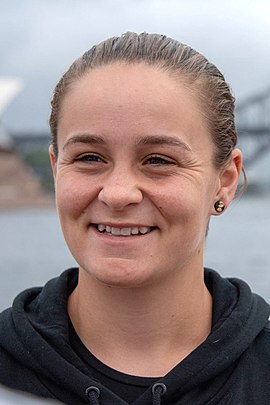 |
| Jacinda Ardern |
On January 19, New Zealand Prime Minister Jacinda Ardern announced that she would not seek re-election when polls are held on October 14 this year. (The full text of her speech.)
(Chris Hipkins is the new Prime Minister.)
When Jacinda Ardern was sworn into office on October 26, 2017, at the age of 37, she became the youngest female head of government in the world. (Hitherto it was Benazir Bhutto of Pakistan.)
Her responses to the shooting in a mosque in Christchurch in 2019 and the Covid pandemic crisis the next year won her laurels, and she led her party to a historic victory in 2020, becoming the most successful prime minister in recent times.
Ironically, though she saved lives, she was blamed for the economic impact the pandemic wreaked.
As people's livelihoods got hit, Ardern's popularity began to slip. So much so that many had been talking of a new leader for the Labour Party who could lead the party to victory.
(Of course, it's a different matter that inflation, price rise and looming recession are problems that most countries in the world are facing. But in politics, that's not reason enough to get oneself bailed out of trouble.)
So, Ardern being replaced wouldn't have been a surprise.
But what was surprising was her candid admission that she didn't have enough energy to carry on and do justice to the position she held. She will be just 43 years old this July.
Very rarely do we hear politicians say that.
Though she didn't use the word "retire", from what she said, for all practical purposes she has retired from politics.
 |
| Ashley Barty |
Nothing surprising about quitting when the chips are down. But to let go of positions and privileges when things are going reasonably well, and pivoting onto a different path with an entirely different set of priorities is something altogether different.
There is a mountaineering analogy here. After having ascended to a good height (literally and figuratively, definitely an achievement in itself) the climber might feel that s/he doesn't have the energy to go on further.
That's when a decision has to be taken whether to "let go of the goal" and start climbing down or "carry on against the odds to reach the summit".
Is there a right time to quit or retire?
There is no one template that everyone can follow blindly. It's a personal decision of reprioritizing one's personal commitments and goals.
Having said that, to call it quits "early" surely requires a fair amount of courage because letting go could be seen as "giving up", and giving up could be seen as a "defeat".
However, it's not what others think that matters. It's one's own comfort levels and priorities that matter.
As Jacinda Ardern said, "For me, it's time." Or, as Ashley Barty said, "It's right for me."